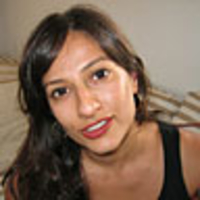Sunday morning, news broke that Anders Breivik, the Norwegian terrorist who allegedly planted a bomb in Oslo and methodically shot and killed at least 85 people at a youth camp in Utoya on Friday, had written a manifesto that decries “multi-culturalists” and “enablers of Islamization,” saying that they are destroying Norwegian values and culture. He called for a Christian war and a revolution in Norwegian society.
I have been living in Bergen, Norway on the western coast for the past two months, here on a writing fellowship, and most of the Norwegians I speak with feel these words are the ramblings of a madman. But, I see it differently. Whether Breivik is a madman or not, he has succeeded—by orchestrating the worst combined day of violence in Western Europe since the 2004 bombings in Madrid—in bringing a long-feared discussion to front and center.
Unsurprisingly, I have found Norway to be one of the sanest, calmest, most beautiful countries I have ever lived in. I find the people solid, kind, and cautious, perhaps the result of having to take care of each other through brutal, dark winters, rugged wilderness, and the lack of fertile land. There is an emphasis on taking care of one another, which is what Prime Minister Jens Stoltenberg asked Norwegians to do after news of the attacks broke. The parents of those young people who were at the Labor Party camp wanted their children to be engaged members of a wealthy and successful democracy. They will be dealing with this nightmare for the rest of their lives.
I’m a non-white American and I look definitively Middle Eastern (my parents are North Indian). I live in New York and was raised in Los Angeles. It has been a long time since I’ve been in rooms and bars and cafes full of only white people. I’m not going to lie: I felt the merest bit of relief when I heard the shooter was an ethnic Norwegian, if only for my own selfish reasons of not wanting to second guess people’s looks.

We all know that America, with its short, 400-year history, is multicultural by definition. I “embrace” my “otherness,” to spew that overused phrase of early '90s identity reclamation. We’re good with heterogeneity. We’re used to the haters. We talk about them. I’m the product of these talks and I’m proud of it.
So why, in Norway, with its near lack of diversity, am I suddenly having nuanced emotions about multiculturalism?
Because multiculturalism brings with it a sense of existential instability, of low-level, unspoken anxiety that in its worst form can explode like a bomb made of fertilizer and diesel fuel. It makes you grapple with who you are in a way that can create literal and figurative displacement. Political ethologist Frank Salter has written that relatively homogenous societies “invest more in public goods, indicating a higher level of public altruism.” A scary thought, given the events in Oslo and Utoya. What nightmare is the parent of a 13- or 14-year-old child who died running from a right-wing Christian fanatic having? They will spend the rest of their lives recovering and trying to find answers to the question, “Why?"
Norway is a small country of four million people who are mostly white. Like other parts of Europe, they’re woefully behind on race conversations and traditional political correctness. (A small example: The most popular spice brand is called “Black Boy,” which would not exactly fly in the U.S.)
But I love being here. I’m attracted to the lack of cultural anxiety. A calm that comes from good health care, oil money, and being in a spot your ancestors have been in for a thousand years. I have learned how to fish, how to steer a boat, and how to appreciate quietness in conversations I’ve had with people who have long been thought of as cold or withholding, but are actually some of the kindest, most authentic people I’ve ever met. This is not a country of small talk. You have to earn your friends, but once you have them, you have them for life.
But immigration is on the rise. The earth’s population is growing, and living with people who are different is inevitable in this age of movement and heterogeneity. Anders Breivik committed this massacre, allegedly, to bring revolution to Norwegian society, and it doesn’t take a whiz to see him as a mirror of Islamic terrorism. So, now the conversation will begin, even here in perfect Norway. And with it comes anxiety that even oil money can’t cushion.
I hope that the world learns from what Norway's prime minister said at his press conference—that people must take care of each other—advice that is so beautifully Norwegian. I hope this advice isn’t only for Norwegians and that people all over the world follow it.
Change is inevitable. But violence is not.





